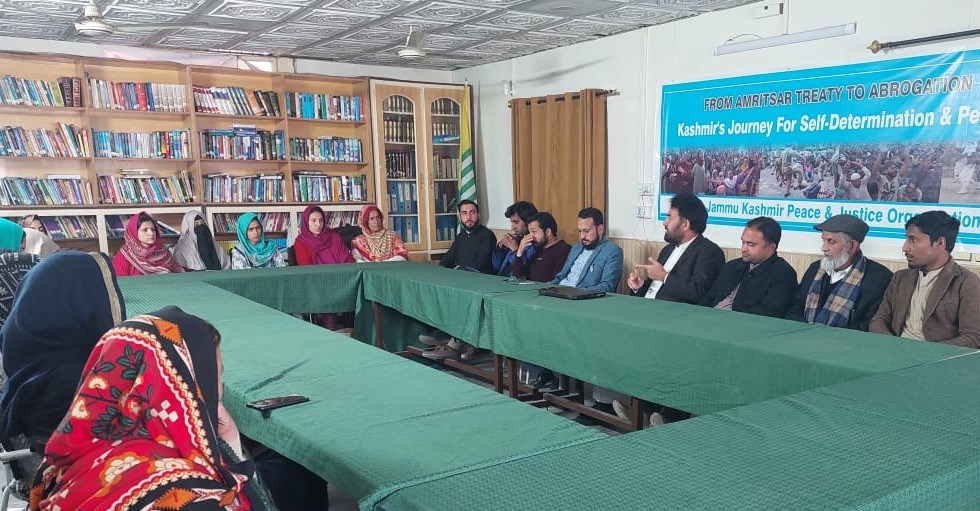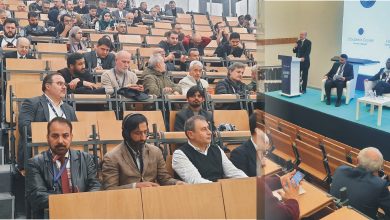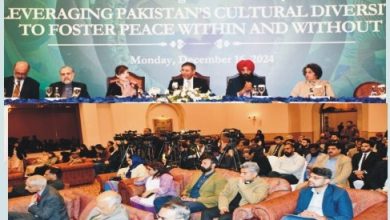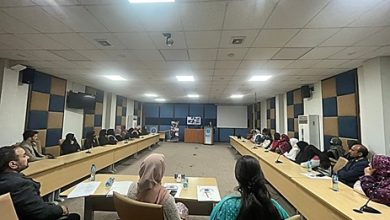Speakers urge world to help resolve Kashmir dispute for regional peace
 Muzaffarabad: The speakers at a seminar on Saturday urged the international community to intervene in the Kashmir crisis and ensure Kashmiris’ right to self-determination for bringing peace and tranquility in the region.
Muzaffarabad: The speakers at a seminar on Saturday urged the international community to intervene in the Kashmir crisis and ensure Kashmiris’ right to self-determination for bringing peace and tranquility in the region.
According to Kashmir Media Service, the event “From Amritsar Treaty to Abrogation: Kashmir’s Journey for Self-Determination and Peace”, which witnessed the participation of prominent scholars, youth activists and locals, including women, was organised by Jammu and Kashmir Peace and Justice Organization (JKPJO).
The seminar, held in two sessions, shed light on the harrowing history and ongoing struggles of the Kashmiri people, highlighted the inhuman repercussions of the Treaty of Amritsar, signed on March 16, 1846 between the British East India Company, and Ranjit Singh, head of the Sikh kingdom of Punjab.
The speakers also highlighted how this infamous agreement, orchestrated by colonial powers and regional actors, perpetuated decades of slavery, exploitation and marginalization under authoritarian Dogra rule.
Prominent Kashmiri leader, peace activist and Chairman of JKPJO, Tanveer-ul-Islam emphasized the importance of comprehending this historical backdrop in framing the narrative of self-determination struggle of Kashmir.
Tanveer emphasized that the Treaty of Amritsar holds significance for scholars, researchers and social scientists. It not only established Jammu and Kashmir as a unified state but also introduced a peculiar system where the people of Kashmir became subjects under a ruler’s authority.
Transitioning into the second session, a notable gathering of civil society members, including luminaries such as Professor Shahid Hussain Mir, Professor Sajid Hussain, journalist Khizar Hayat Abbasi and Muhammad Yaseen Khan attended the event and severely condemned the atrocities endured by Kashmiris, spanning from the oppressive Dogra rule to the recent revocation of Articles 370 and 35A by India.
Professor Shahid Hussain Mir eloquently delineated the centuries-long struggle of Kashmiris, raising the systemic discrimination and oppression faced under various rulers. He poignantly recounted harrowing events such as the killings of silk factory workers in 1924 and the massacre outside Srinagar Central Jail in 1931, shedding light on the deep scars etched into Kashmir’s collective psyche.
In his concluding remarks, Chairman of JKPJO, Tanveer-ul-Islam delved into the aftermath of partition in 1947 and the subsequent human rights abuses perpetrated against Kashmiris. He fervently appealed to the international community to proactively facilitate dialogue and advocate for the fundamental rights of Kashmiris.
The seminar culminated with a resounding call to action for the international community to stand in solidarity with the oppressed Kashmiri people and work towards a just and peaceful resolution to the conflict.
The participants expressed optimism that through collective efforts, the aspirations of the Kashmiri people for self-determination and peace would finally be realized.
The event underscored the urgent need for sustained attention to the Kashmir issue and emphasized the indispensable role of global solidarity in securing justice and freedom for the people of Kashmir. As the echoes of suffering persist in Kashmir, the seminar served as a poignant reminder of the imperative for concerted action to alleviate the plight of Kashmiris and pave the way for a future defined by dignity, equality, and freedom.








